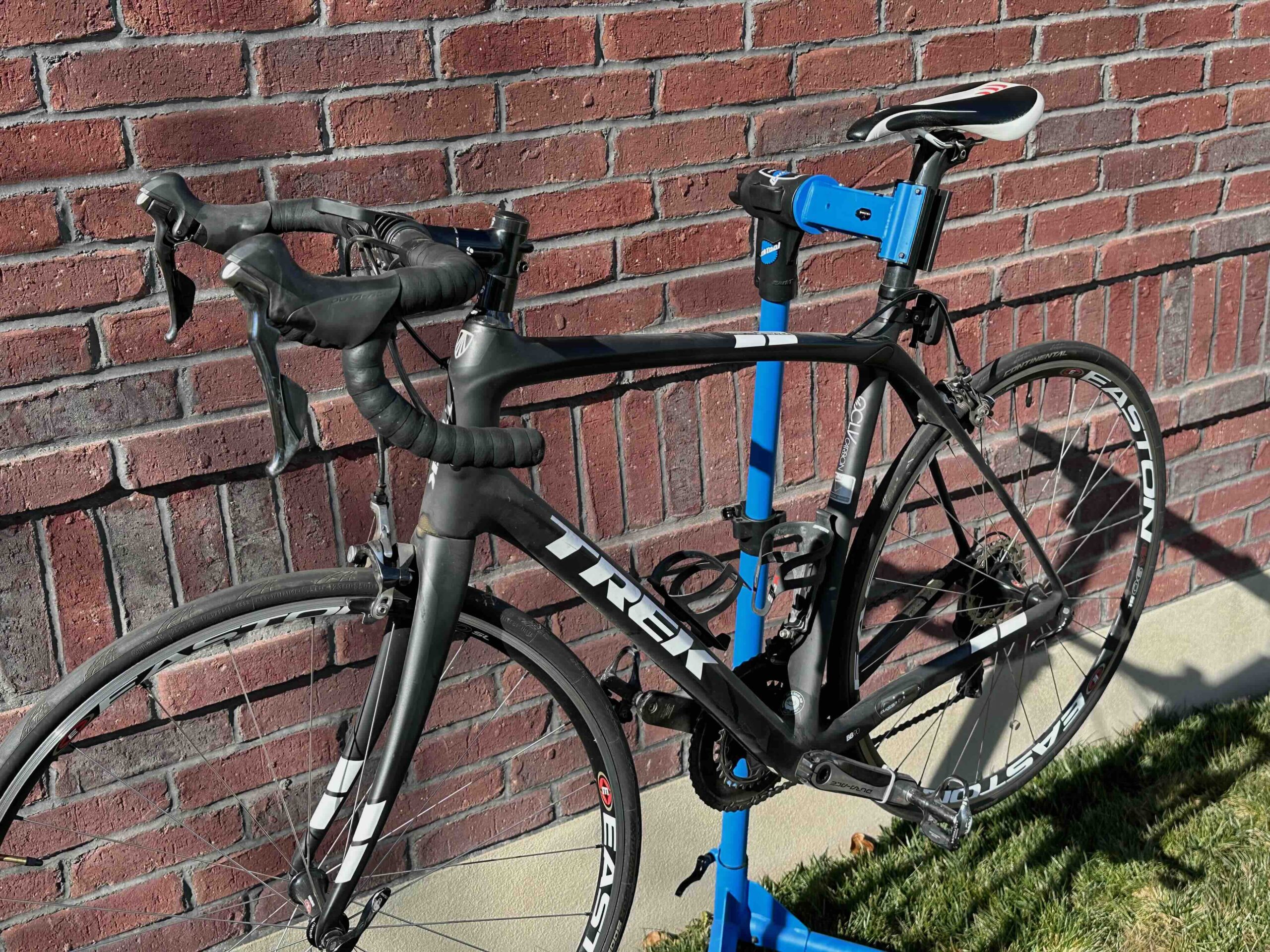The weight of a road bicycle is an important metric that can significantly impact a cyclist’s performance, especially when it comes to climbing, acceleration, and overall handling. Lighter bikes are often prized for their agility and responsiveness, while heavier bikes may offer stability and durability. Understanding the importance of bike weight and how it affects riding experience is essential for cyclists when making purchasing decisions and optimizing their performance on the road.
Modern Road Bicycles
Road bike manufacturers like Trek, Specialized, and Giant offer a wide range of models with varying weights to cater to different preferences and price points. While specific weights can vary depending on the bike’s size, components, and materials used, here’s a general overview of the average weights of road bicycles from these popular brands:
- Trek: Trek road bikes typically range from around 17 to 20 pounds (7.7 to 9 kilograms) for mid-range models, with high-end models weighing as little as 14 to 16 pounds (6.4 to 7.3 kilograms).
- Specialized: Specialized road bikes also fall within a similar weight range, with mid-range models weighing around 17 to 20 pounds (7.7 to 9 kilograms) and top-tier models weighing 14 to 16 pounds (6.4 to 7.3 kilograms) or less.
- Giant: Giant road bikes typically have comparable weights to Trek and Specialized, with mid-range models weighing around 17 to 20 pounds (7.7 to 9 kilograms) and high-end models weighing 14 to 16 pounds (6.4 to 7.3 kilograms) or slightly more.
Accessories Add Weight
It’s essential to consider that the weight of a road bike doesn’t solely depend on the frame and components. Accessories such as pedals, seat bags, water bottle holders, bottles, and cycling computers can add significant weight to the overall bike. For example:
- Pedals: Depending on the type and material, pedals can add anywhere from 200 to 400 grams (0.44 to 0.88 pounds) to the bike’s weight.
- Seat Bag: A seat bag with essential tools and spare tubes can add around 200 to 300 grams (0.44 to 0.66 pounds) to the bike’s weight.
- Water Bottle Holders and Bottles: Each water bottle holder and filled water bottle typically adds around 100 to 200 grams (0.22 to 0.44 pounds) to the bike’s weight.
- Cycling Computer: Depending on the model and features, a cycling computer can add approximately 50 to 150 grams (0.11 to 0.33 pounds) to the bike’s weight.
Should You Be Concerned?
Professional cyclists often prioritize the lightest possible bikes to gain a competitive edge, especially in mountainous stages or during sprint finishes. Every gram saved can contribute to faster climbing speeds and quicker acceleration. However, for recreational riders and enthusiasts, the importance of bike weight is less significant.
While riding a lighter bike may offer a slight speed advantage in certain situations, factors such as fitness, technique, and riding experience play a more significant role in overall performance. Additionally, heavier bikes may provide greater stability and durability, making them suitable for long-distance rides or rough road conditions.
For most recreational riders, the difference in performance between a slightly heavier and lighter bike is minimal and often outweighed by other factors such as comfort, fit, and affordability. Instead of obsessing over bike weight, cyclists should focus on factors that have a more significant impact on their riding experience, such as proper bike fit, maintenance, and training consistency.
On a personal note, since I’ve never been a racer. I’ve come to the conclusion that for me a lighter bike doesn’t make a significant difference. I do love riding light bikes with expensive components (Dura-Ace), but it really doesn’t make me any faster. It’s really all about your personal conditioning and fitness level.
Conclusion
While road bicycle weight can impact performance, its importance varies depending on individual preferences, riding style, and goals. While professional cyclists may prioritize the lightest possible bikes for competitive advantages, recreational riders can focus on factors such as comfort, fit, and affordability when selecting a road bike. Ultimately, enjoying the ride and achieving personal goals should take precedence over obsessing about bike weight.

